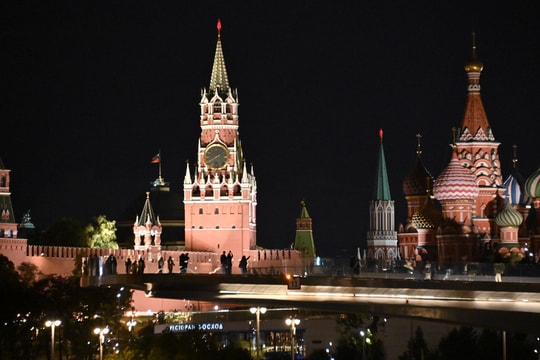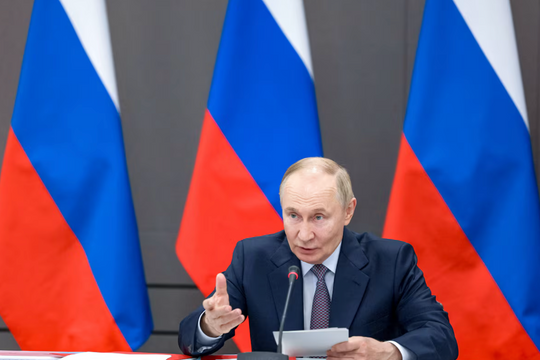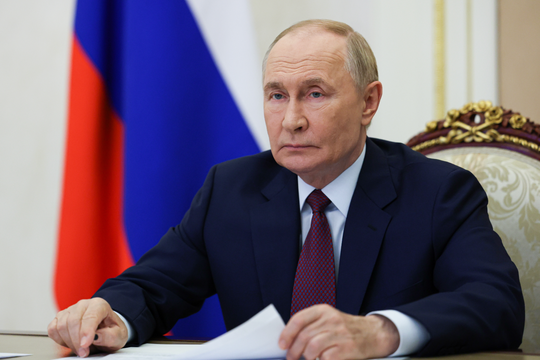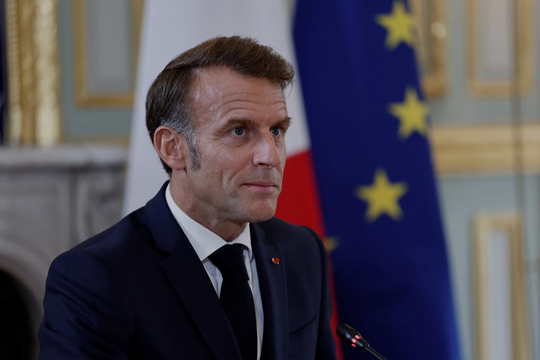Iraq - Türkiye conflict erupts: The Middle East "fire pan" gets "hotter"
(Baonghean) - “A serious violation of Iraqi sovereignty” is the phrase Iraqi Prime Minister Haider al-Abadi used to describe Türkiye’s move to send more than 100 soldiers into the country’s territory. Iraqi officials also asked Prime Minister al-Abadi’s government to launch airstrikes on this Turkish force.
“The risk of regional confrontation” is the phrase that some analysts use to describe the current situation in the Middle East after the Iraq-Türkiye conflict suddenly became tense.
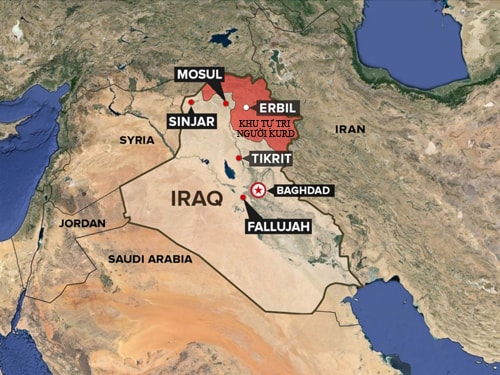 |
| The autonomous Kurdish region in northern Iraq, bordering Türkiye. Graphics: BBC |
Türkiye's unilateral deployment of troops to Mosul without the permission of the Iraqi government has further complicated the situation, while tensions related to Turkey's shooting down of a Russian Su-24 fighter jet have not yet subsided. Even the Arab League has just condemned Turkey's deployment of troops to northern Iraq, saying that this is no different from "intervention".
On December 2, Iraqi Prime Minister al-Abadi bluntly declared that the country does not need foreign ground forces to fight IS. Iraq asked Türkiye to "immediately" withdraw its forces, including tanks and artillery, from the northern region of the country because the deployment of troops did not have Iraq's permission.
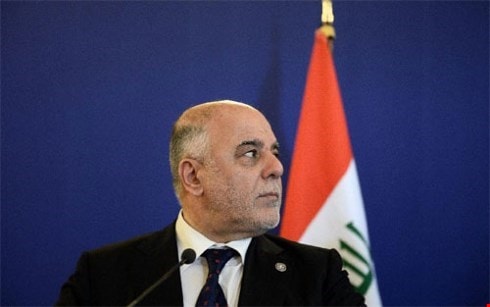 |
| Iraqi Prime Minister Haider al-Abadi. (AFP photo). |
The chairman of the Iraqi parliament's security and defense committee, Hakim al-Zamili, also declared that Ankara had "blatantly invaded a sovereign country" and demanded that the government take military action in response. The Iraqi government summoned the Turkish ambassador to express its protest, while Iraqi Defense Minister Khaled al-Obeidi held a phone call with his Turkish counterpart.
Iraq and Turkey are both US allies, but have a rocky relationship. Iraq is ruled by a Shiite Muslim government, while Turkey is ruled by a Sunni Muslim government. Ankara is ethnically and politically hostile to the Kurds at home and in Syria, but has good relations with the Kurds in Iraq. In return, the Iraqi government views the Kurdish forces in the north as “difficult”.
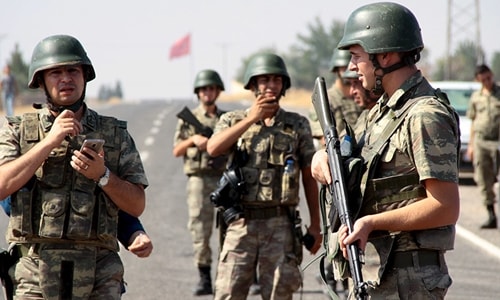 |
| Turkish soldiers. Photo: Reuters. |
In fact, the Kurds in northern Iraq have long lived with a high degree of autonomy and are virtually independent of the central government in Baghdad. Not only that, these Kurdish fighters and more than 1,200 Sunni fighters in northern Iraq who oppose the government have been trained by Türkiye.
Analysts say that Türkiye sent troops to Iraq under the guise of training Kurdish militias "to fight against the self-proclaimed Islamic State (IS) militants" in Mosul, but in reality, it was to cause division and instability in Iraq and to enhance Turkey's position in the Middle East. In addition, this action is also seen as a message to Russia, which has deep disagreements with Turkey. Iraq, on the other hand, is concerned that Turkey's move risks completely separating the Central Government's control over Kurdish territory in northern Iraq.
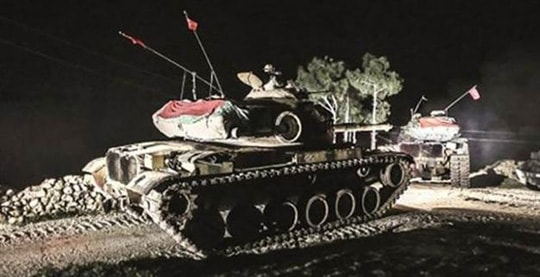 |
| Turkish tanks deployed to the Bashiqa area in Mosul City - Iraq. Photo: Hurriyet daily news. |
Chairman of the Iraqi Parliament's Security and Defense Committee Hakim al-Zamili explained: In case Turkish forces refuse to withdraw from the area and the Iraqi army does not react, this will pave the way for other foreign forces such as the US, Saudi Arabia, Qatar and other Muslim countries to make similar moves.
While the Russia-Turkey confrontation has not yet cooled down after Türkiye shot down a Russian Su-24 fighter jet, Mr. Hakim al-Zamili, Chairman of the Iraqi Parliament's National Security and Defense Committee, has hinted at a threat to seek "direct military intervention" from Russia, causing public concern. Analysts say that Turkey's move to send troops into Iraq could further complicate the fight against IS, which is currently being fought by many countries with different views and positions. In addition, if this makes Iraq lean towards Russia and Iran, and even ask Russia to intervene to attack the Turkish army on Iraqi territory, the risk of a dangerous conflict and confrontation is entirely possible. At that time, the Middle East fire will be difficult to extinguish./.
Nguyen Cao Bien

